Health Belief Model and CHF Diet Non-Compliance Presentation
VerifiedAdded on 2022/09/17
|10
|845
|16
Presentation
AI Summary
This presentation addresses the critical issue of non-compliance with diet in individuals suffering from congestive heart failure (CHF). It highlights the negative health outcomes associated with poor dietary adherence, such as increased risk of cardiac arrest and stroke. The presentation introduces the Health Belief Model as a framework to improve patient behavior and health outcomes within the cardiology specialty unit. The model's three components—individual perceptions, modifying factors, and expected outcomes—are discussed in the context of promoting positive lifestyle changes, including adherence to diet and medication regimens. The presentation emphasizes the importance of health literacy in empowering patients and details evidence-based practices, such as health promotion programs and referrals to support services. Recommendations include conducting more health promotion programs, referrals to appropriate support systems for dietary monitoring, and clinical investigation tests to monitor metabolic function, ultimately aiming to improve overall patient health and reduce morbidity and mortality associated with CHF.
1 out of 10

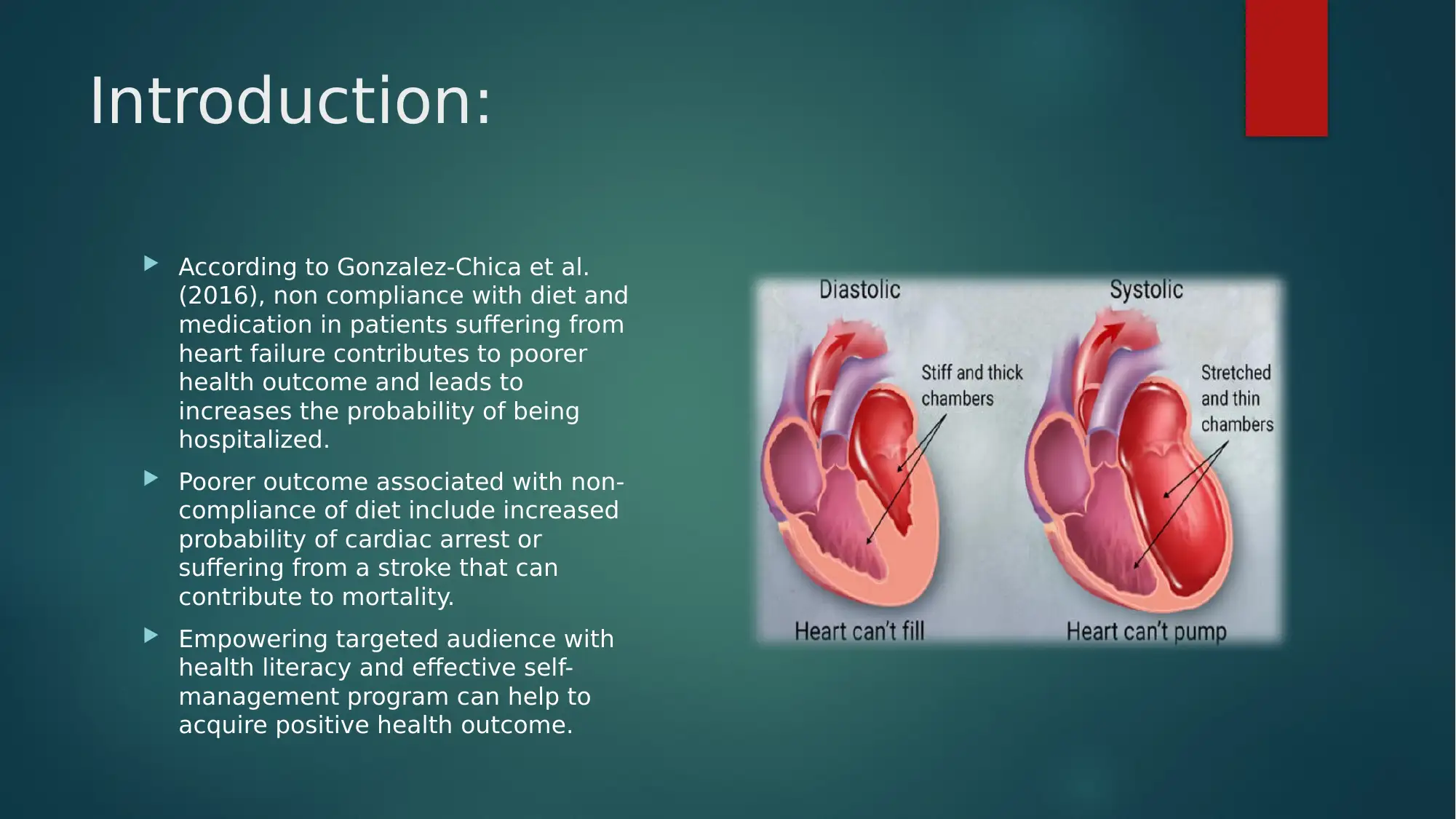
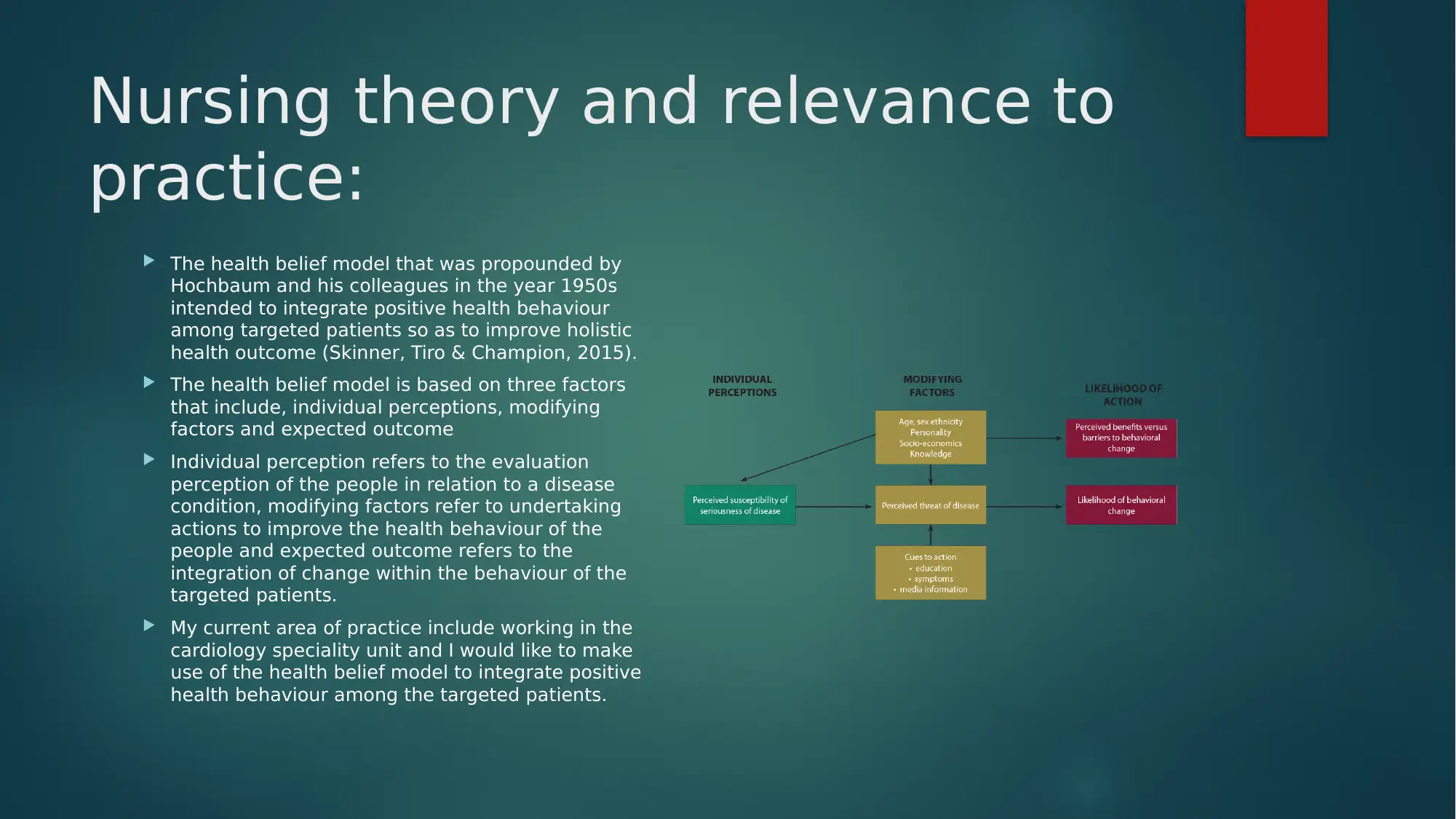


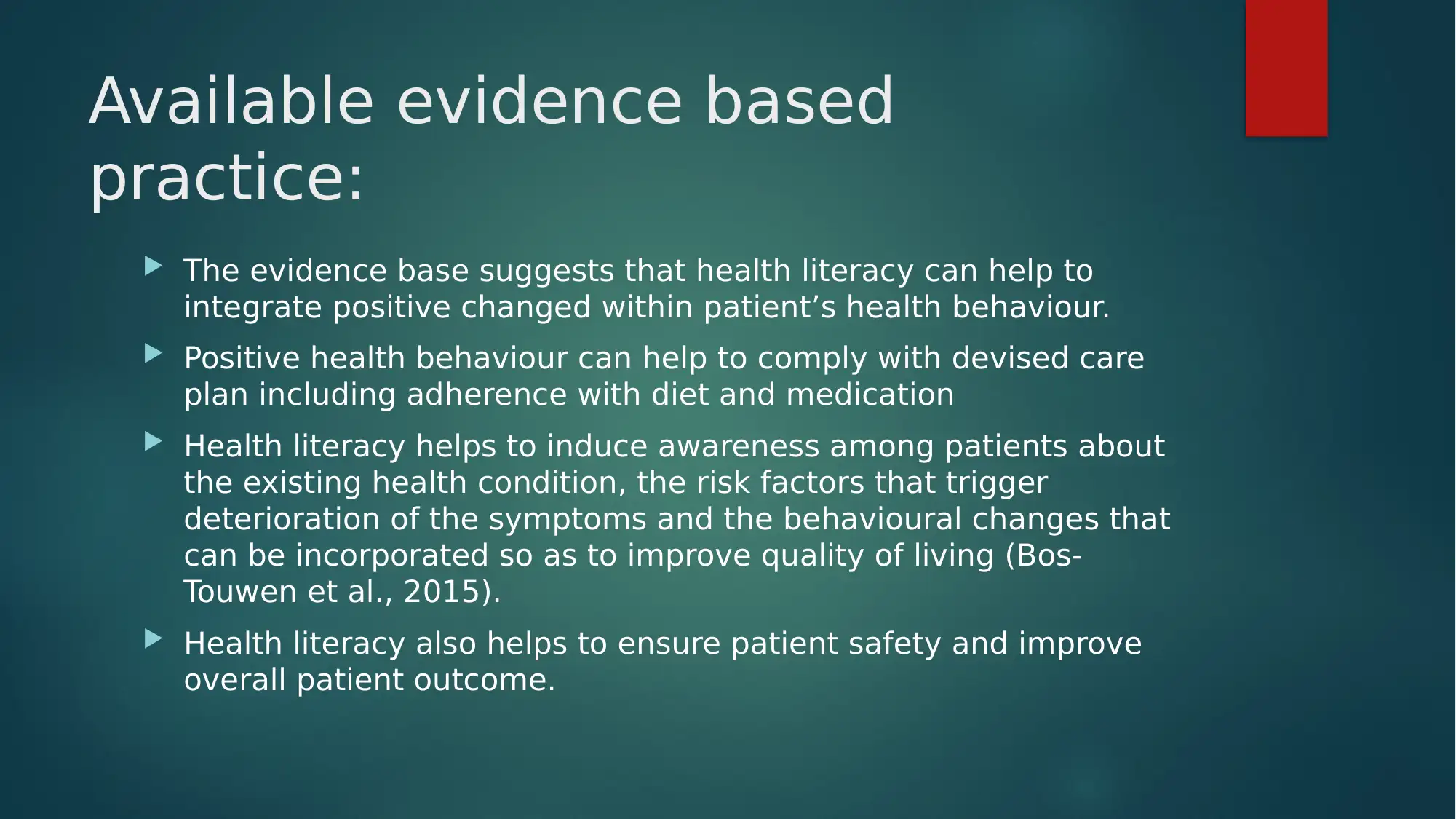

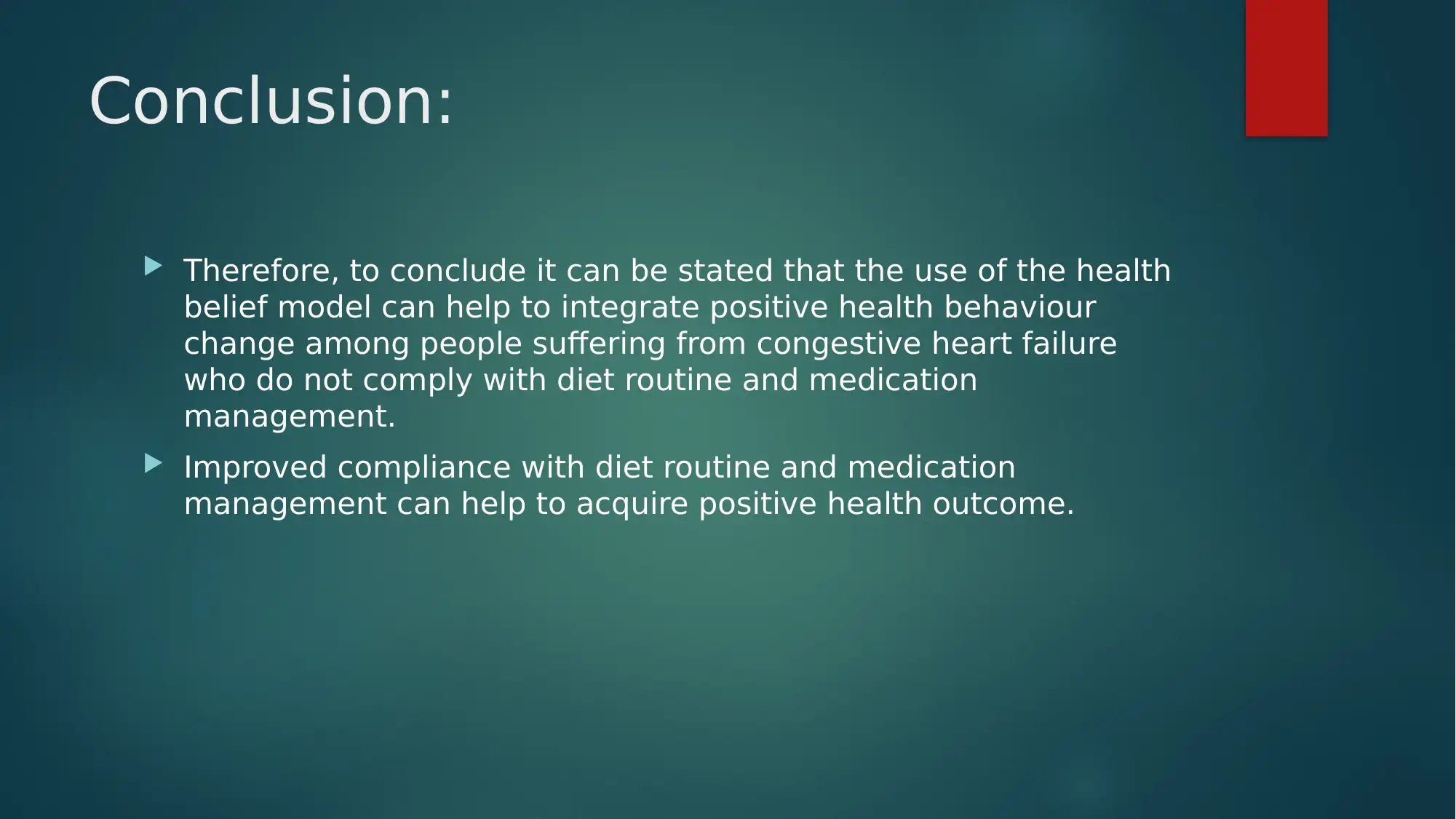

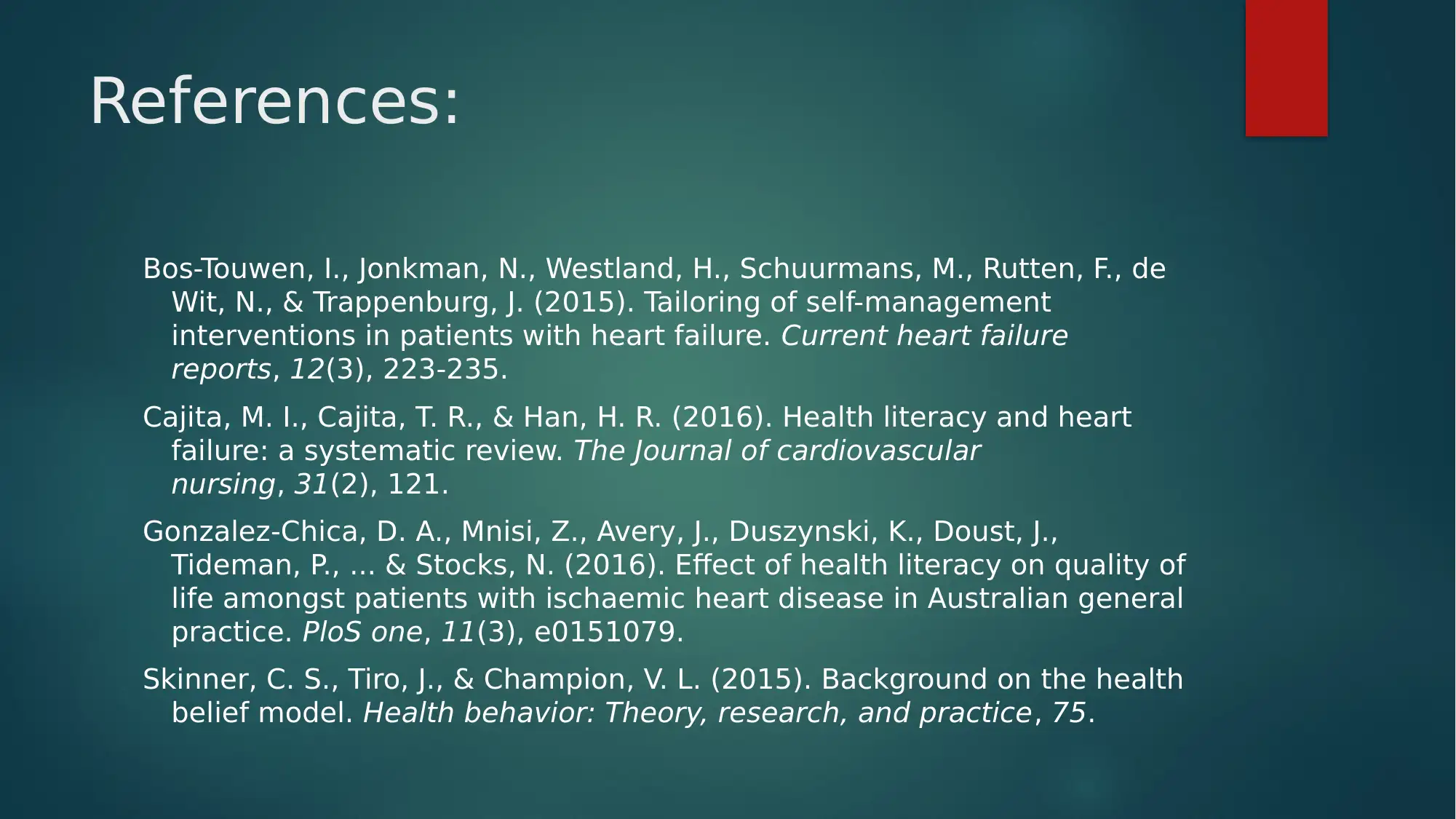







![[object Object]](/_next/static/media/star-bottom.7253800d.svg)